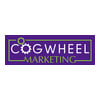Case Study: Breaking Free from OTAs with Paid Search
Hotels face a constant challenge with the dominance of Online Travel Agencies (OTAs) taking share in every market. And then paying 18-23% of their net revenue back for the privilege of getting these bookings. With just a small investment that is much less than these commissions and shift to a more strategic mindset, share can be shifted back to the hotels where it belongs.
This branded property near Boston and Logan Airport was no exception. By leveraging a strategic approach to people searching their market for rooms, the property sought to head off and engage potential guests before they even realize the OTAs are there or they finalized their bookings on the OTAs.
Challenge & Overview
The hotel was having challenges with reservation growth happening through OTA channels and not through direct Brand.com channels. While occ index was getting better, the bottomline revenue production was suffering as commission payments went up with it.
Increased traffic growth to OTA channels also carries a risk of cross-selling. Every visitor to every OTA site is given multiple properties to compare rates against. This can slow long-term guest acquisition and return guest stays.
The property needed a proactive way to reach general market guests before or just as they were considering shopping OTAs and bringing them to Brand.com to book instead.
Research: How Guests Make Booking Decisions
Average Window for Research & Decisions:
(Data showing the average booking window is based on extensive research by Expedia in 2023)
- 71 DAYS on average to do research
- 1 DAY on the actual booking
- 73 DAYS on average from the date of booking to the date of arrival
The 71-day period of research consists of:
- Visiting 277 travel content pages
- >500 minutes consuming content
- 3 in 5 guests have multiple locations in mind
The time frame that guests recall seeing ads and report being influenced by ads to make a booking:
81%: >4 weeks before booking
39%: 1-3 weeks before booking
7%: the week of booking
Findings from research:
- If you want your hotel to be considered for a direct booking when a guest is ready to book, you must be promoting yourself 4-10 weeks out to guests doing general market research online.
- The longer you wait and the less you promote yourself, the more likely you are to lose your direct booking to OTAs that run ad campaigns 365 days per year. And the more likely you are to lose a booking to the OTAs cross-selling your guest.
- ROAS must be measured by total brand.com lift over time and NOT as tracked campaign revenue. This is due to the best tracking available being limited to 30 day windows only. Well under the 4-10 week average window for ideal campaign influence on a booking.
Methodology in Action
Working with the Cogwheel Paid Media Team in Q1 2024, the property focused exclusively on “non-brand” keywords in their paid search campaigns on Google. This would intercept new guests before they narrowed their search to a single property, and at the ideal time to have maximum influence on their decision.
These are terms that most often fall under the ideal window of 4-10 weeks from the date of booking, per our research findings.
No other paid media campaigns were launched or live during this time. Per Google Trends reporting and local CVB, there were no market demand spikes that would increase compression either.
Cogwheel researched and ran ads promoting the property services, amenities, and preferred location near top demand generators people usually searched for.
The keywords targeted had high monthly search volume (>1000/mo), low competition factor (Google index <40), and low CPCs (<$2). This all combines to ensure we will have a large enough SOV to be set up for success.
KPIs
CPCs: $1-$2 SOV: 10-20% CTR: >6% Phone Calls: 25/mo.
Results: Channel Shift Success Data
KPIs Achieved:
CPC: $2.03 SOV: 10% CTR: 9.6% Phone Calls: 28/mo
Property Booking Shift vs. 2023:
- +13% gain in bookings done directly through the property-owned channels (Brand.com + Voice)
- -10% loss in bookings done through OTAs
Phone calls tracked back to these “non-brand” search campaigns were tracked through Google phone tracking as part of the campaigns. All of these can be considered incremental interest since they are tied to keywords outside of the brand.
CTR was over 9%. The KPI target is >6%. Being well over target means the campaigns found the right people doing non-brand research and the reaction was very strong to the hotel services, amenities, and location.
The Power of Early Engagement for Direct Bookings
The results from the property’s collaboration with our Paid Media Team highlight the effectiveness of targeting non-brand keywords in paid search campaigns. With a 13% increase in direct bookings and a 10% reduction in OTA bookings, the strategy successfully shifted the booking pattern toward property-owned channels.
These findings underscore the importance of reaching potential guests early in their decision-making process, particularly during the crucial 4-10 week window before booking.
About Cogwheel Marketing
Cogwheel Marketing™️ is a full service digital marketing agency specializing in branded hotels, first leveraging brand systems then coupling that with supplemental strategies to maximize total online presence. Their reporting and business intelligence tool, Cogwheel Analytics, aggregates data from multiple sources to allow companies to identify trends and opportunities in their online presence. Our defined processes ensure the best positioning for your hotel against the competitive set and against other hotels of the same brand. Let us work with your sales and revenue management teams to identify and close the gaps and target your ideal guests.
Stephanie Smith
Founder and Digital Matriarch
+1 540 239 1052
Cogwheel Marketing
